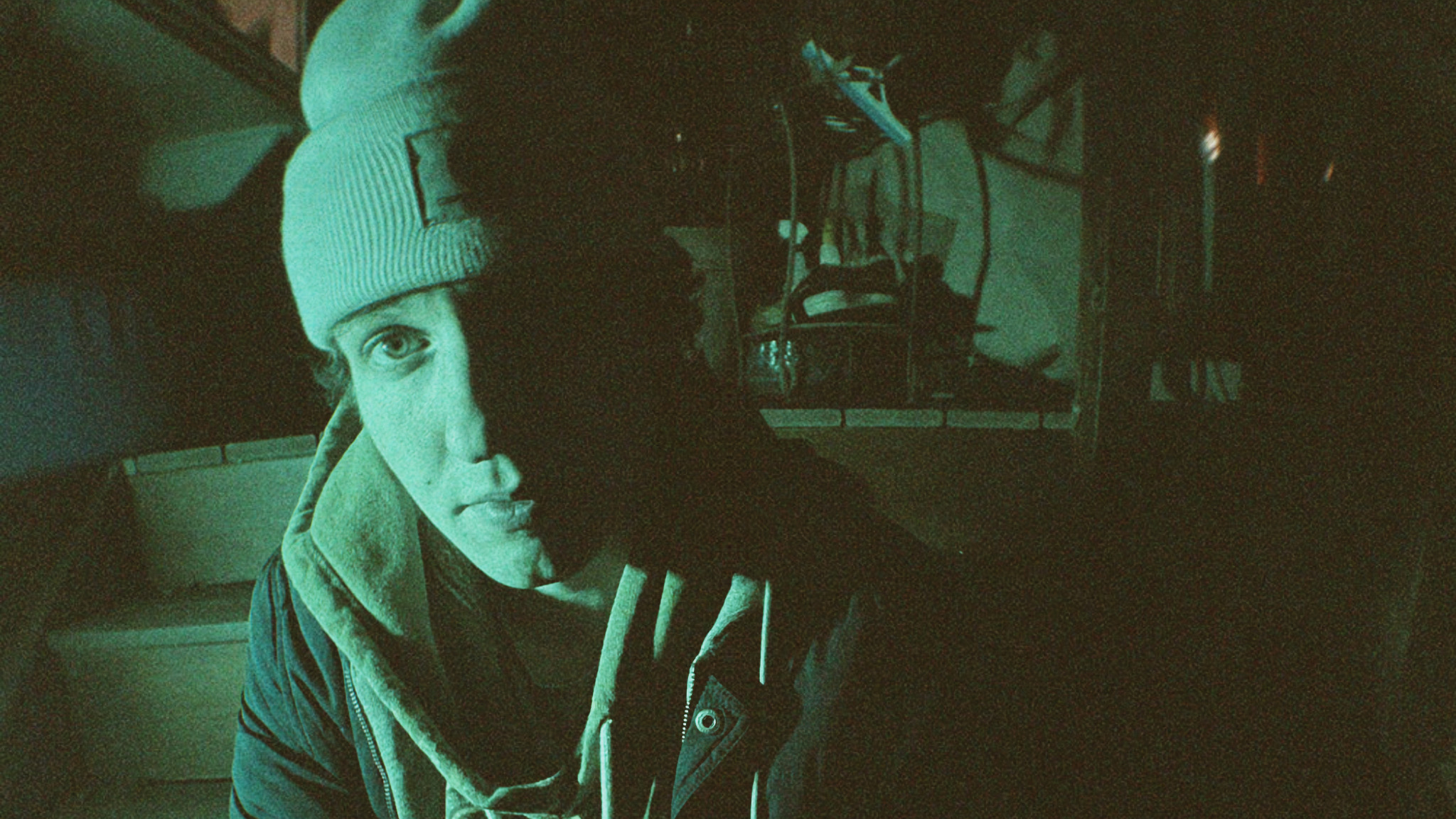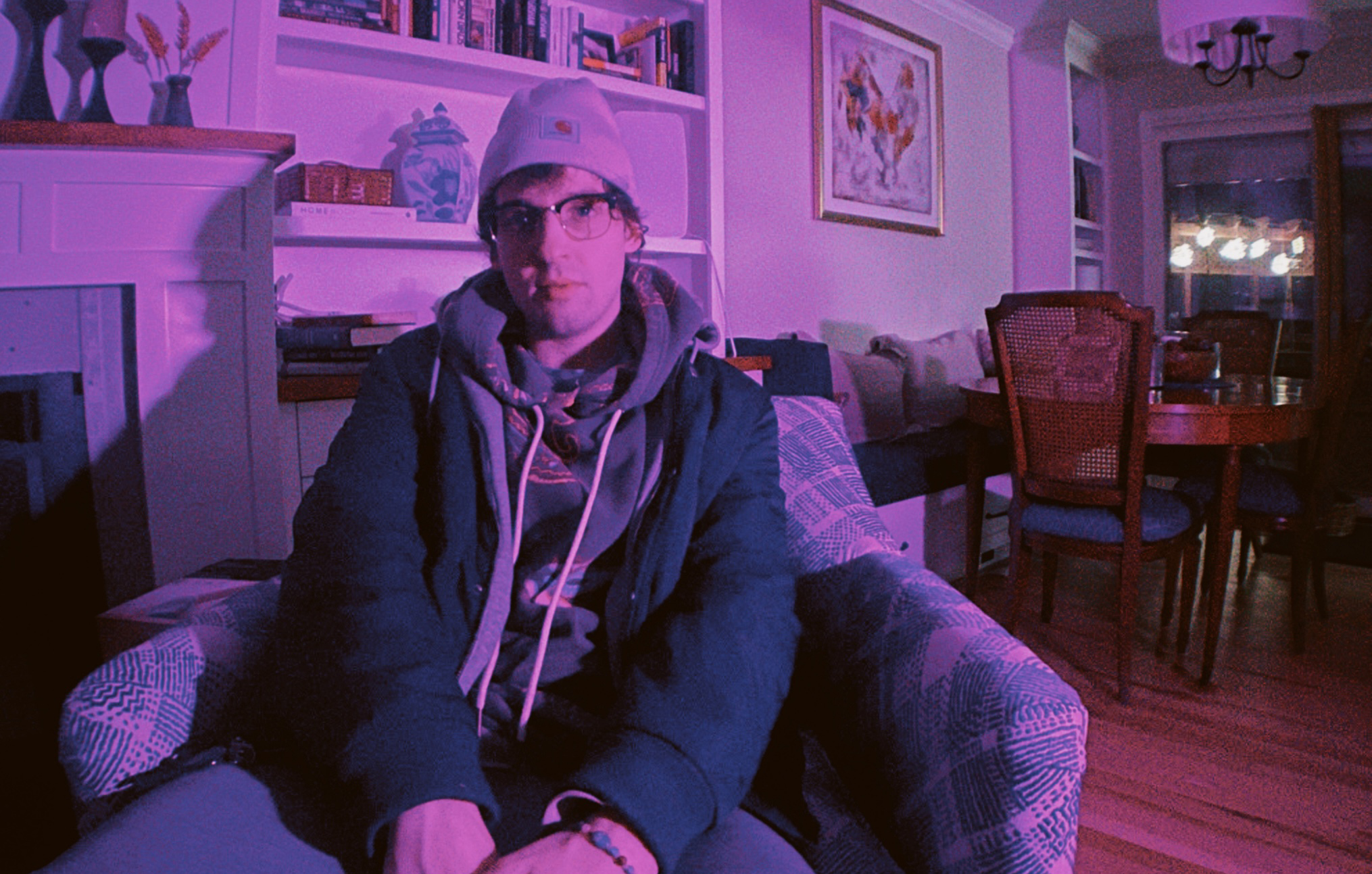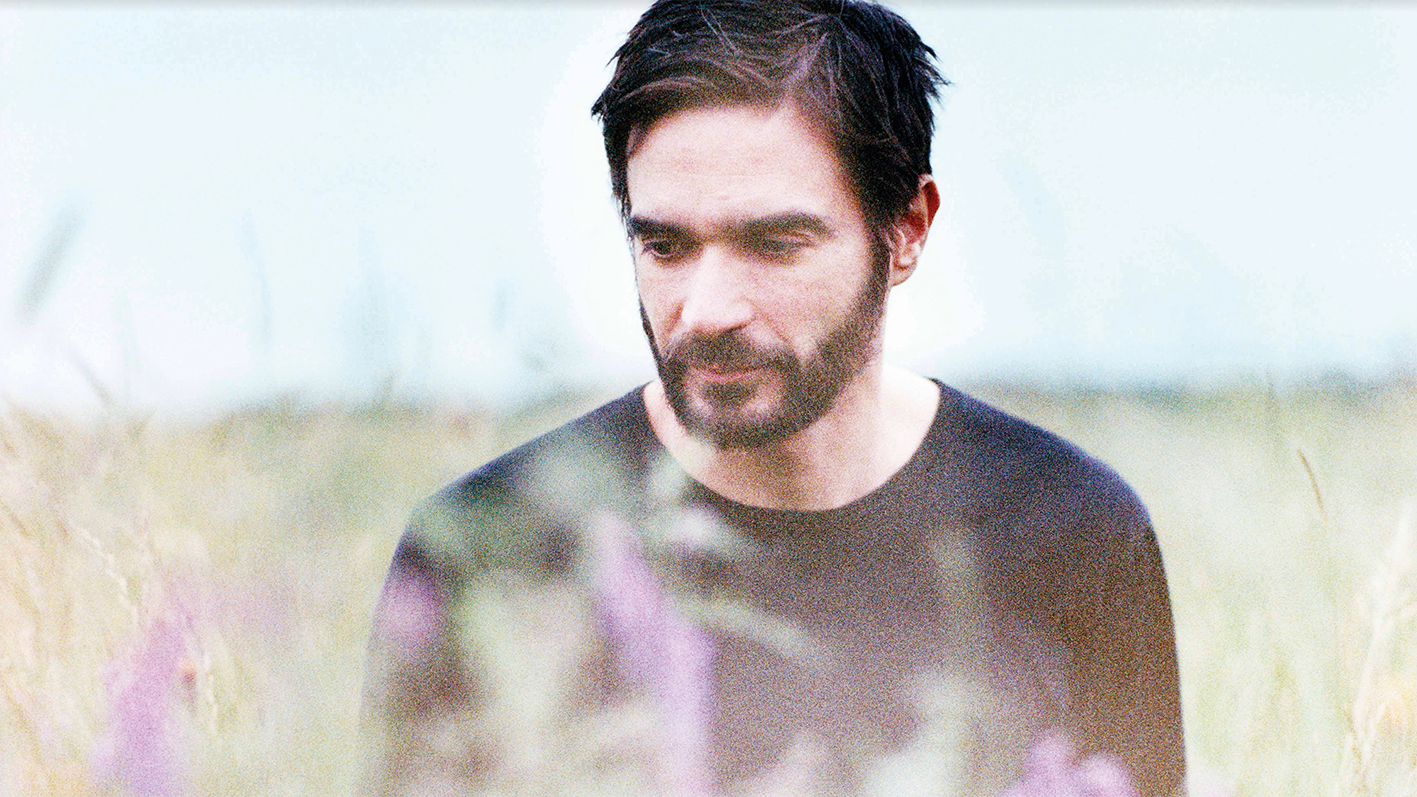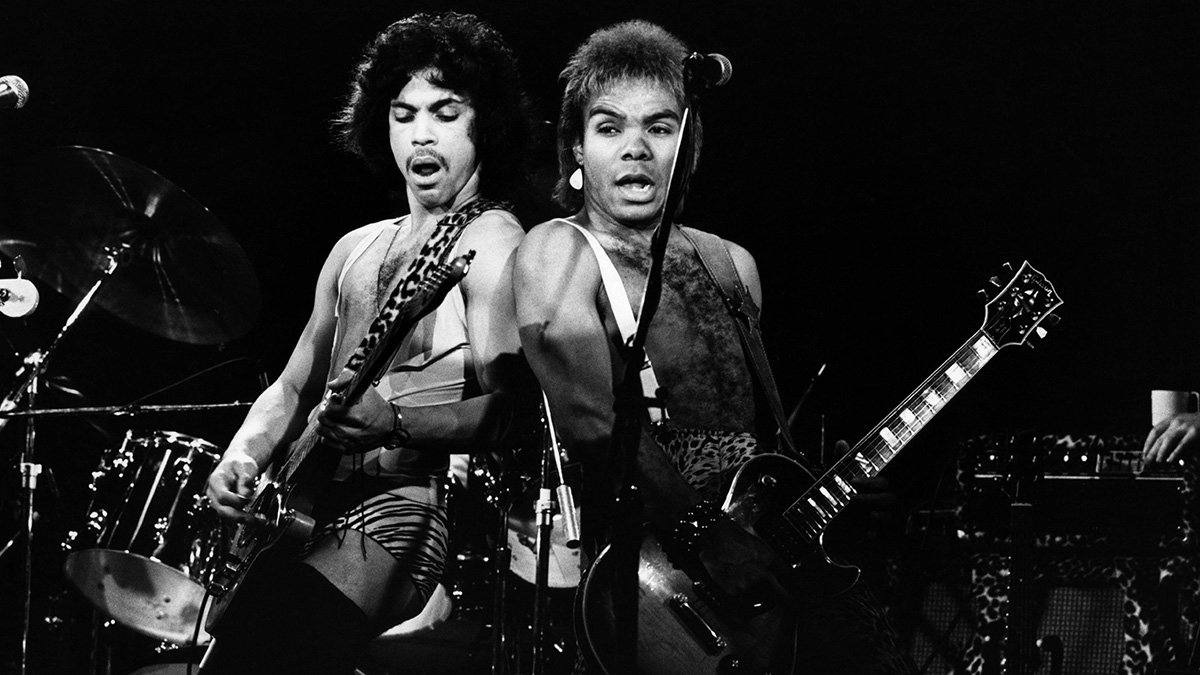Villager: "My Elektron Digitakt - I love that thing. I can do drum programming in a few minutes that would take me hours inside a DAW"
After opening up his first DAW at 12, Alex Young was sharing stages with Skrillex at only 15 years old - ten years on and he's releasing his debut album

Alex Young threw himself into producing and performing electronic music earlier than most: after picking up instruments at eight years old and opening up his first DAW at 12, he was playing live at EDC Vegas at only 15 and sharing stages with the likes of Skrillex, Kaytranada and Cashmere Cat.
After a heavy touring schedule threatened to burn him out, Villager decided to retreat from the live circuit and focus on developing his voice as an artist, releasing his debut Aura EP on Boys Noize’s label in 2019. Three years on and he’s further refined his style and approach to production, resulting in a new album, Frontier. The record takes cues from the richly textured electronica of artists like Four Tet and Jon Hopkins, repurposing club rhythms into detailed, emotive music that rewards closer listening.
Alex joined us to drop three tips for creative production and talk about the synths, samplers and plugins that were essential in recording his latest album, Frontier.

When did you start making music, and how did you first get started?
“I started producing music at age twelve, so about thirteen years ago now. I have been playing guitar and drums since I was 8, and just eventually felt a strong urge to start recording and producing myself. It started as just instrumental recordings before I felt the draw to start producing electronic music when I was a teenager. I was pretty eclectic from the get-go, initially inspired by Skrillex, Flying Lotus, J Dilla, and Cashmere Cat.”
How did you get into DJing and playing live at such a young age? What lessons did you learn from that experience?
“I got into DJing and music production at a young age partly because I was so into computers at the time, as well as into music and playing instruments. I started DJing and music production at the exact same time, because of a program my music school had recently started, where they began teaching kids how to DJ with vinyl setups.”
Get the MusicRadar Newsletter
Want all the hottest music and gear news, reviews, deals, features and more, direct to your inbox? Sign up here.
Ableton is by far the most powerful DAW for working with audio
“When I started that program, I immediately got interested in production as well, and being able to get to the point where I could begin playing my own works out in DJ sets. Working with software like FL Studio and Ableton became a natural extension of these two passions I had, music and working with computers.
"When I discovered I could have the best of both worlds, I was instantly hooked. Albeit, I’ve spent a whole lot more time producing than DJing now, ten years down the line, but they sort of work together in tandem, especially when you’re making electronic music.”
“I think the lessons I learned from getting into this, is that you really don’t need to go through other people to get your musical ideas into tangible form when you learn to produce and mix records, and it becomes a deeply gratifying experience to bring your ideas to fruition. It’s a more difficult path than relying on other people to do things for you, but so fulfilling when you get to the point where you are enjoying the music you make.”
What other artists do you look up to for inspiration?
“My biggest inspirations as far as dance music goes are kind of extensive, but the producers that immediately come to mind are, in no particular order: Four Tet, Caribou, Nicolas Jaar, Flying Lotus, Floating Points, Skee Mask, Andy Stott, DJ Koze, J Dilla, Madlib, Imogen Heap, Todd Edwards, Jon Hopkins, and Blawan.
“I think all those musicians are top of the crop as far as how music production can be used as an outlet for profoundly deep emotional expression when done right. There are so many amazing producers so it’s impossible to pick a favorite, but all of the above are genuinely great at what they do, and never fail to inspire me.
“As far as songwriting and artists and other domains, my biggest influences are Radiohead, Kanye West, Justin Vernon, Arthur Russell, Unknown Mortal Orchestra, Dijon (as of late), Bjork, Lana Del Rey, and so many more. It’s amazing to be alive in a time where so much great art exists. I never cease to be inspired.”
Great electronic music involves patience, and the reward is so much greater for it
If you had to pick one track that’s been most influential on your work, what would it be and why?
“If I had to pick one track that’s been most influential for Villager, I really couldn’t pick one, but two that come to mind right away are Evening Side by Four Tet and Open Eye Signal by Jon Hopkins.
“Evening Side might be my favorite release of Kieran’s. It’s so powerful. I think it’s like 23 minutes or something like that, but it approaches electronic music in such a subtle, meaningful way. I think great electronic music involves patience, and the reward is so much greater for it. The way this track builds and evolves is so special, and really has inspired me to not give into the pressure to make everything short and bite-size like so many producers do these days, in the time of ever-shortening attention spans.
“Open Eye Signal, in my opinion, is one of the greatest techno tracks ever. Immaculate production, so much attention to detail, a monstrous MS-20 synth sound, and just listening to this song gives you the impression a LOT of time was spent making this tune.
“A lot of techno music comes about pretty quickly for many producers, but I can tell this is not one of those tracks. Jon Hopkins has this insanely meticulous sense that comes through in almost all of his music, and it makes much of it feel above and beyond the gamut of the rest. I strive to be that detail-oriented one day… but not sure it’s my calling, as I am addicted to committing to things and moving on. I think Open Eye Signal is techno perfectionism at its best, seeing an idea through to the most excellent possible rendition.”
My Elektron Digitakt - I love that thing. It’s a little beast
Tell us about your studio/set-up.
“These days I have a much more extensive studio. I use a lot of hardware samplers like the Elektron Octatrack and Digitakt, my instrument chain is a 1176 into a pair of Pultec EQs into an LA-2A compressor, but that’s predominantly just used for instrument tracking.
"All my preamps and my interface are made by Audient. I used a Manley Ref C mic for awhile, but I sold that, and now use Lauten Audio mics along with SM7B for most things, and a ton of other random dynamic microphones for drums.”
What DAW (or DAWs) do you use, and why did you choose it?
“Ableton! I think it’s by far the most powerful DAW for working with audio, which is what I mainly do when producing. I don’t do too much MIDI sequencing stuff besides Omnisphere. The warping functionality in Ableton is unmatched, in my opinion.”
What one piece of gear in your studio could you not do without, and why?
“These days, it’s my Elektron Digitakt. I love that thing. It’s a little beast. It’s so quick for fleshing out beats, and I can do a lot of drum programming stuff in a few minutes, that would take me hours to program inside a DAW. And it’s just so fun. I make beats everywhere with it.”
What's the latest addition to your studio?
“I’ve been obsessed with this plugin called Infiltrator, by Devious Machines. It’s a multi-effect sequencer, but it really shines in its distortion and compression modules. It works well on everything, drums, bass, mix buss, etc. That and Soothe2 have been my go to plug-ins as of late.”

Sonic destruction: the science of distortion and how to use it
What dream bit of gear would you love to have in your studio?
“I would love to pick up that Moog Matriarch sometime soon. I’ve played with it a bunch and it’s one of my favorite sounding synths. My far-out gear dreams would be a legitimate recording console like an API, or some really nice compressors for mastering like the Elysia Alpha, Shadow Hills Mastering Compressor, or a Fairchild.”
When approaching a new track or project, where do you start?
“All over the place, really. For Villager, it’s usually some drum sequence or sample sequence on a sampler, and then I produce and arrange it out in Ableton. When I’m writing songs, I generally start with guitar, and then vocals, and then all the other instruments and additional production. Half the fun of producing music is being spontaneous with it, though, so I don’t really have a concrete formula for churning out music.”
What are you currently working on?
“After this first Villager album is released, I’ll be focusing most of my attention next year to my other song project under my own name (Alex Young), and have a ton of music coming out that I’m really excited for people to hear. I’ll be trying to produce and write for a lot of other artists next year as well.”
Villager's top three tips for creative production
1. Don’t be too much of a perfectionist
“I always tell my production students to focus on broad strokes when making music, and not go too crazy fixating on little nuances or details until the main idea, arrangement, and most predominant elements of the song or beat are fleshed out. All the other things are icing on the cake, and most of the time, us creators are the only ones who notice them.”
2. Don't forget to have fun
“This one is kind of trite, and obvious, but you’d be surprised how many musicians I know, especially those trying to pursue it professionally, that forget to enjoy the craft of making music. It should be about love, passion, and fun more than anything else. When you put other intentions above those, I think it’s easy for your music to start sounding cliche, or almost like a caricature of itself. Examine your intention and try to make the music-making experience as pure as possible.”
3. Challenge yourself by producing different styles of music
“This may be my own artistic sensibility, but I’ve found extreme growth in learning to produce a wide array of music styles: songs, rap beats, dance music, and many different genres. I think the best producers are chameleons in that sense, and if you can learn to approach every studio session with a level of detachment, you will end up servicing the music more than servicing your idea of who you think you are a musician, which is an easy trap to fall into. Don’t let your musical style and identity be a prison.”
Villager’s new album, Frontier, is out January 29th on MCMXCV.



I'm MusicRadar's Tech Editor, working across everything from product news and gear-focused features to artist interviews and tech tutorials. I love electronic music and I'm perpetually fascinated by the tools we use to make it. When I'm not behind my laptop keyboard, you'll probably find me behind a MIDI keyboard, carefully crafting the beginnings of another project that I'll ultimately abandon to the creative graveyard that is my overstuffed hard drive.










